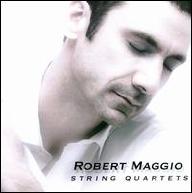The Borromeo String Quartet was formed in 1989 when the original four members -- violinists Nicholas Kitchen and Ruggero Allifranchi, violist Ensik Choi, and cellist Yeesun Kim (she and Kitchen are married) -- were all students at the Curtis Institute of Music in Philadelphia. Visiting the northern Italian town of Stresa when they decided to establish the group, they settled on the name Borromeo, referring to the nearby Borromean Islands in Lake Maggiore. They were pleased by the name's four syllables, blending easily to form a single expressive unit. Choi departed in 1994 and was replaced by Hsin-Yun Huang; in 2000, Huang and Allifranchini departed and were replaced by William Fedkenheuer and Mai Motobuchi; and Fedkenheuer was replaced in 2006 by Kristopher Tong. Despite these personnel changes, the quartet has an unbroken record of accolades and strong performance schedules. A win at the Young Concert Artists International Auditions in 1991 propelled the quartet to concert appearances at the 92nd Street Y in New York and the Kennedy Center in Washington. The following year, the group became artists-in-residence at the New England Conservatory. It has also held residencies at the Taos School of Music Summer Program, the Heifetz International Music Institute, and National Public Radio. In 1998, the group won the highly prestigious Cleveland Quartet Awards.
The Borromeo String Quartet has performed throughout the Americas, Europe, and Asia. The members see advantages in their distinctive practice of using laptop computers (Macbook Pro model) on stage; they can read the full score instead of only their own parts, and they can project relevant material (such as the composer's autograph) on a screen. The quartet has collaborated with a variety of major composers, including John Cage, Osvaldo Golijov, and Jennifer Higdon. The quartet has recorded for various labels, including Innova, Bridge, and Centaur; most of their recordings have featured contemporary music. In 2018, the group joined the Cypress String Quartet and Stephen Salters for an album of six string quartets by Elena Ruehr.
The quartet created and continues to perform two youth programs: "MATHEMUSICA" explores the numerical basis of musical forms, while "CLASSIC VIDEO" uses music as a platform for teaching computer drawing, video editing, animation, musical form, and production processes in a fusion of music and visual art. ~ James Manheim, Rovi












